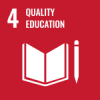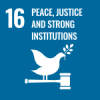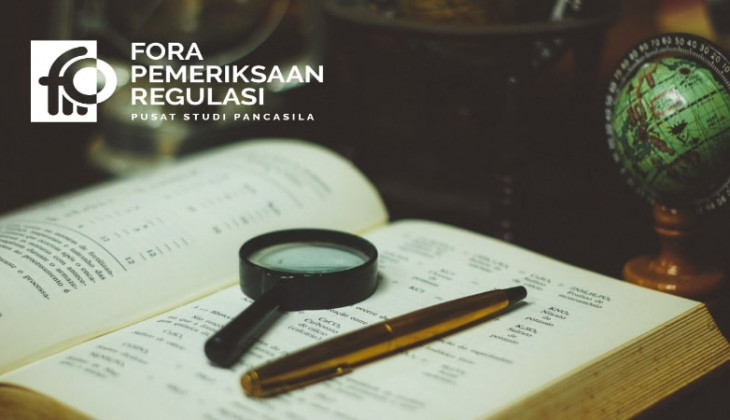To assess the implementation and actualization of Pancasila in daily state administration, the UGM Center for Pancasila Studies has developed a Regulatory Examination Fora.
This program will assess all legislative products, both regulations or laws, issued by public institutions from all branches of legislative, judicative and executive powers, both at the central and regional levels, based on their suitability or incompatibility with Pancasila.
“We will launch this year. If MUI has a halal label, then we have a label informing whether or not it is in accordance with Pancasila, “said the Head of PSP UGM, Agus Wahyudi, Friday (10/1).
Through FPR, PSP UGM intends to contribute in the form of services and tools to help the products of legislation, laws and regulations that appear throughout the country conform to the basic understanding of Pancasila as a set of values and definitions that are understood as the basis of the state, standards or principles to determine the validity of public policies and laws that govern national life.
There are 3 types of reviews and criteria, namely; 1) exempted reviews that do not contradict Pancasila and have strong or acceptable legitimacy, are useful to the wider community, 2) expedited reviews that do not strengthen or do not create “structural injustice” and dehumanization, are low risk, and have a protocol impact and non-invasive, and 3) full fora review.
The criteria of the full fora review is that it is contrary to the General Provisions of the FPR PSP-UGM Manual, has the potential to strengthen or create “structural injustice” and dehumanization, has a non-invasive protocol impact, and high risk.
As a party affected by the law or regulation enforced in Indonesia, the community can also be involved in the FPR PSP UGM activities or program as judges, reviewer teams, FPR administrators and administrators of provincial and district delegations in accordance with the FPR activity rules.
In addition, Agus said that the community can provide input on the standards used as an assessment.
“This standard will be reviewed periodically. If the public sees the existing protocol as untenable, we will make changes, “said Agus.
He introduced this service in the Pancasila Talk with the theme “Pancasila, Emotions & Democratic Radicalization” which was held at PSP UGM. This time, the Pancasila discussion discusses the implementation and actualization of Pancasila, especially how Pancasila is translated into ethics and morals and community relations.
One of the issues raised was related to what he called uncivil civil society. In the dominant political narrative of the nation, the study of emotions becomes interesting to be developed in connection with the effort to draw the community into a democratic model.
“We have to build methods but also build narratives to ensure society can be drawn into a democratic design,” he said.
He added, when talking about Pancasila as the basis of the state, we are actually talking about how to actualize Pancasila in the basic structure of society. Pancasila applies to economic, political and cultural systems, and also includes the behavior of state administrators.
“The people who has the biggest role are state administrators, that is how the executive, legislative and judiciary are in effect, that determines whether Pancasila is actual or not,” said Agus.
Source: https://ugm.ac.id/id/berita/18924-psp-ugm-akan-periksa-regulasi-yang-tidak-sesuai-dengan-pancasila



